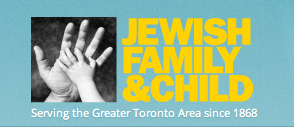I have chosen to interview my Mom, Debi Schacter as she has plenty of first hand experience dealing with child psychology in particular with her foster daughter Devorah who is now 13 months. Devorah is considered to be a child with an exceptionality as she has speech and visual impairments which have delayed her development in these areas in turn lowering her performance level amongst children with normal development. In my interview with Debi we focused on what kind of assistance Devorah has been provided with to improve her development and what phases she has surpassed and her goals for the future.
Devorah has been in my family’s care since August 2011 through Jewish Family & Child Services, a children’s aid society for the Jewish Community. The following is a link to their website, where you can find more information on the organization and their foster care program:
http://www.jfandcs.com/client/jfcs/jfcs_2011_lp4w_lnd_webstation.nsf/page/Foster+Care!opendocument
THE INTERVIEW:
JESSICA:
What phase in speech development would Devorah be recognized?
0-5 months– Cooing; pleasure sounds
6-11 months- babbles, tries to repeat sounds, tries to communicate with actions/gestures
12-17 months– Knows four-six words, tries to imitate simple words
DEBI:
Devorah is 13 months however her speech development is delayed by almost 4 months therefore should would be considered in the 6-11 months stage. I always hear her repeating the same sounds and she has started to communicate with actions especially when she wants to be carried.
JESSICA:
Does she seek therapy or some sort of intervention to help improve her speech to eventually get to a level of normal development if possible? If so what does this entail?
DEBI:
Yes, she see’s a Speech therapist once a week. The therapist focuses on repeating sounds and will say a sound and try to get Devorah to repeat it; she also observes the noises she’s making to see if they are normal. The therapist will also provide me with certain exercises to do with Devorah at home to develop her speech and communication skills. The therapist is also able to identify potential communication disorders she may encounter in the future and make a plan of intervention activities to prevent the disorder from developing.
JESSICA:
What stage in visual development would Devorah be recognized in?
6-8 months
- Eye-hand coordination continues to improve
- Visual goal setting
- Fairly accurate eye movement control
8-12 months
- Able to judge distances
- Integration of vision and fine motor coordination
Toddlers & Preschoolers
- Continued development of eye/hand/body coordination, eye teaming, and depth perception
- First eye exam is recommended at age 3; another before school starts
JESSICA:
What are Devorah’s goals for the future in regards to her speech, visual and motor development?
DEBI:
Devorah’s goal in speech development is to start forming words like “mama” and “dada” and start to gain a vocabulary of 4 words, as well as enhance her communication skills through more action and gestures. With the aid of her glasses we hope to see this begin to help Devorah’s vision so that she can see distant objects and react to people at a distance. In her motor development we hope to see a development in her tacticle coordination and self-help skills meaning if she loses her balance she should be able to gain it back by herself, or if she falls over have the ability to pull herself back up.

